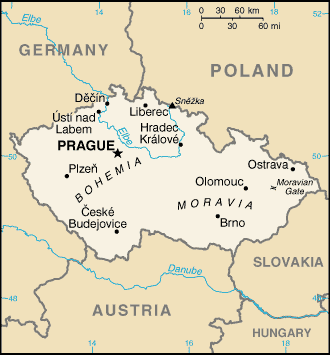άρθρα
της Wikipedia
![]()

Κυριλλικό αλφάβητο
THE BYZANTINE STATE BEGUN FLOURISHING
The kingdom of Michael the Third was characterized by
significant military success against the Arabs in Asia Minor
and great progress in culture and economy.
Since the Byzantines have established their dominion in Asia
Minor, they tried to face the Slavic problem mainly by
turning the Slavs into Christians. The Slavs of Moravia, the
Russians and the Bulgarians became Christians during this
period. During this period there was also a great conflict
between the two churches (of Rome and Constantinople) over
the Slavic world. They were both interested in turning the
Slavs into Christians and keep them under their influence.
These clashing interests led to the first schism between the
two churches (867).
The Christianization of the Slavs:
The leader of the Slavs of Moravia asked for missionaries to
preach in Moravia. The Byzantines sent a team with two
intellectuals from Salonica Cyril who knew the Slavonic
language and his brother Methodius. They invented a Slavonic
alphabet and they translated the Holy Bible into the
Slavonic language. Both the mass and the preaching were held
in the Slavonic language. Even though the Slavonic church
came later under the influence of the Church of Rome the
Byzantine culture threw deep roots and influenced the Slavic
national literature.
The Christianization of the Russians
After an unsuccessful attack against Constantinople
Byzantine missionaries were sent to the Russians and begun
their conversion to Christianity.
The Christianization of the Bulgarians.
The Bulgarians asked of the Church of Rome to send
missionaries in Bulgaria. The Byzantines didn’t allow the
priests to reach Bulgaria by blockading the Bulgarian state
by land and sea. The Bulgarian leader Boris was forced to
accept the Christianization of his state by the church of
Constantinople. When however a Byzantine bishop was put in
charge of the Bulgarian church Boris turned towards the
Church of Rome. The patriarch faced this new interference of
the Church of Rome and accused Rome for worshiping matters
and especially for the doctrine of the filioque. Finally
after a Synod held in Constantinople the Bulgarian church
was brought under the jurisdiction of the church of
Constantinople.